Web scraping proxy & antidetect bundle
Collect data without blocks using real residential scraping proxies inside isolated browser profiles. Stay undetected, automate at scale, and scrape confidently with clean, rotating IPs from a pool of over 30 million residential addresses.


Scrape without blocks using real residential IPs
All Multilogin plans include built-in residential proxy traffic with no extra setup or added cost, so your antidetect browser and residential proxies run in the same environment without conflicts. You get 95% clean IPs, 99.99% stability uptime, and 24-hour sticky sessions, giving you consistent, block-free scraping even during long runs.
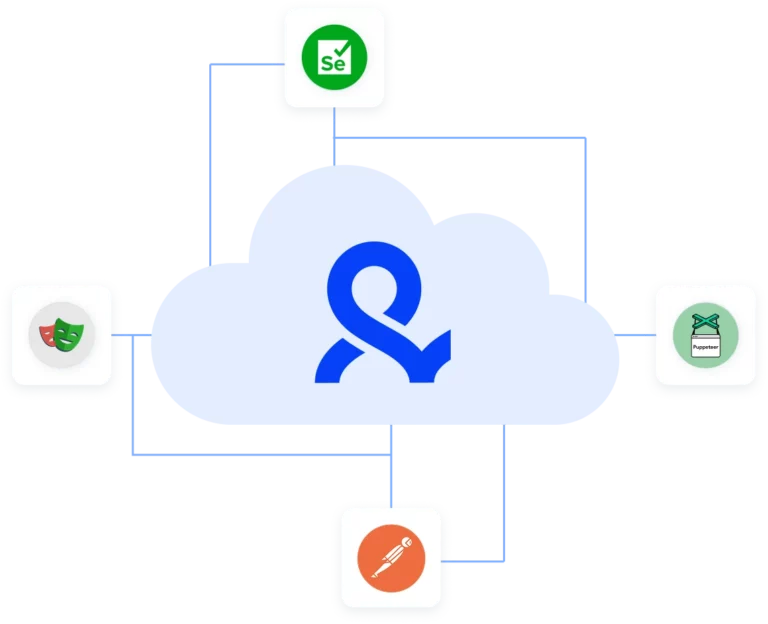
Automation-ready scraping with full support for your favorite frameworks
Run your workflows through Selenium, Puppeteer, Playwright, Postman, or Multilogin CLI without extra setup. Each profile loads with a stable fingerprint and residential proxy, so your automation runs stay consistent, undetected, and easy to manage through the API.
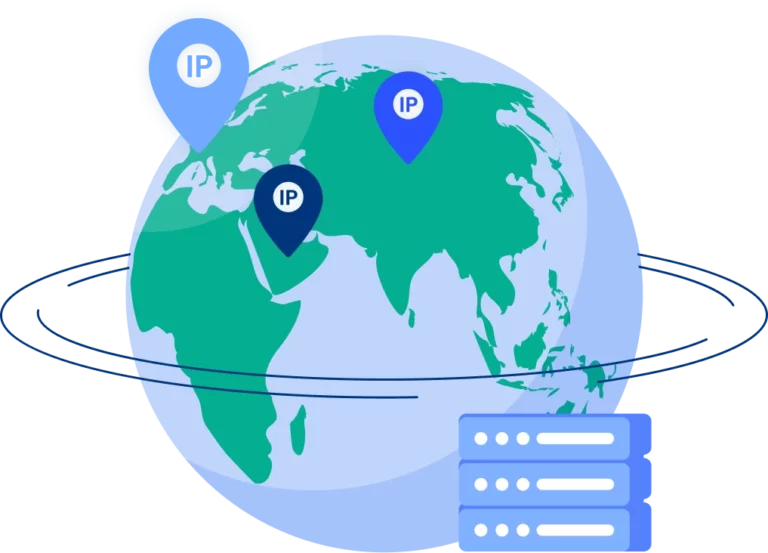
Save time with pre-configured web scraping proxies
Every profile in Multilogin comes with residential proxies already built in, so you skip manual setup and start scraping instantly. No juggling external providers — your browser environment and proxy stay synced, stable, and ready for long runs.
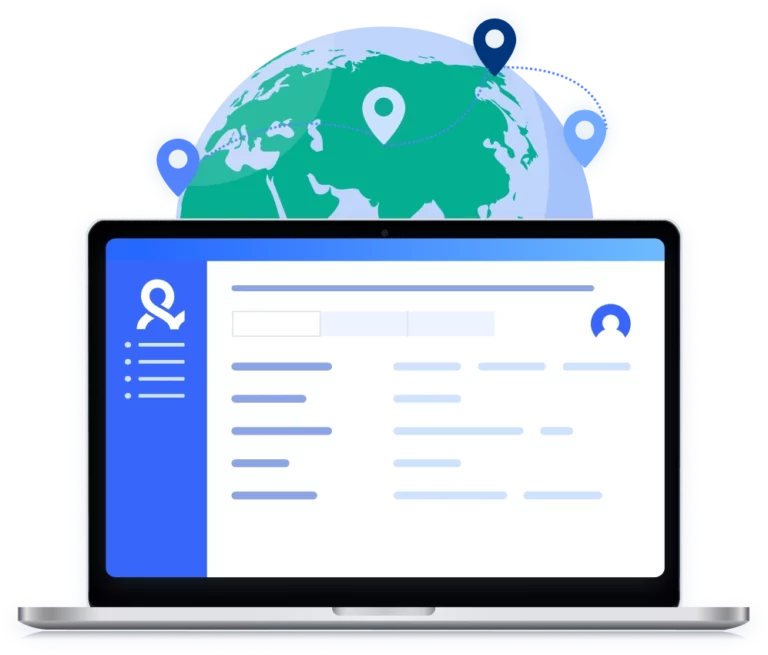
Run thousands of accounts from one browser
Create and manage large volumes of accounts without getting flagged. Each profile runs with its own fingerprint and residential proxy, so platforms can’t link your sessions. Automate registrations, logins, and repetitive actions from a single machine, and keep everything stable with long-lasting sessions built for scale.

Import your third-party proxies to Multilogin
If you already use external proxies, you can add them directly to your profiles in a few clicks. Multilogin supports all major proxy formats, so you can mix your own providers with built-in residential traffic while keeping every session isolated and consistent.
What is antidetect browser?
An antidetect browser lets you create separate browser profiles that each look like a different real device. It changes fingerprints, cookies, and IPs, so websites can’t link your sessions together. This helps you run multiple accounts or scraping projects without getting flagged.

Why use proxies and a browser from the same provider?
When your browser and proxies come from one place, they’re built to work together. You avoid mismatched settings, proxy leaks, and fingerprint conflicts that cause bans. With Multilogin, every profile loads with the right fingerprint and a residential IP already in place, giving you a stable, undetected environment from the start.
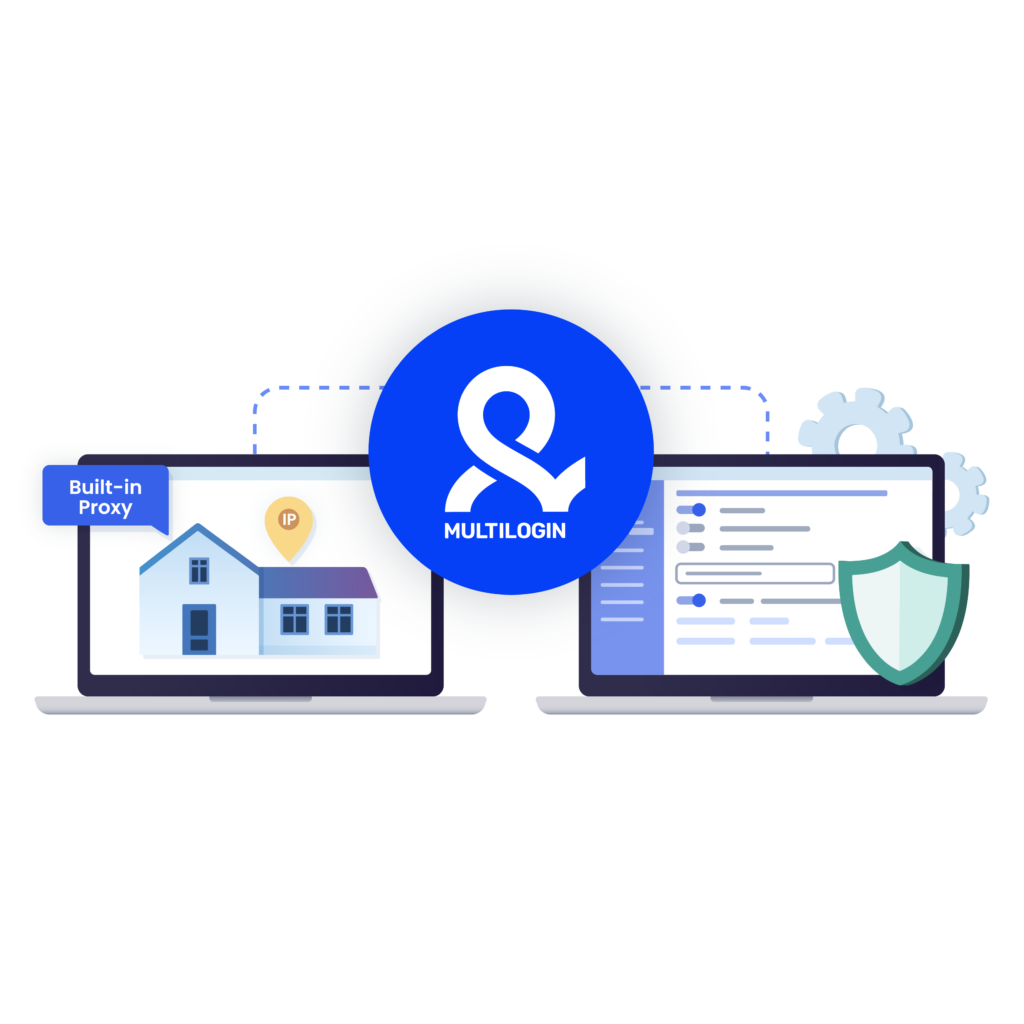
Multilogin features
Bypass bot detection
Our anti-fingerprinting tech bypasses multi-account and automated browser detection by masking unique browser fingerprints.
Integration with Selenium, Playwright, and Puppeteer
Automate data extraction with popular browser automation drivers all while keeping them invisible to anti-automation bots.
Residential rotating proxies
Gain access to premium residential proxy nodes in 1400+ cities across 150+ countries with your Multilogin subscription.
Fingerprint adjustment to proxies
Our system automatically adjusts all browser fingerprints to match the proxy’s location to enhance anonymity.
Support for all proxy types
Use our proxies or bring your own. Multilogin supports all proxy types.
Data sync over VPS
Use our cloud profiles to synchronize data across multiple VPS instances effortlessly.
Fully featured browsers
Our browsers mimic real user activity to prevent website restrictions, unlike other headless browsers.
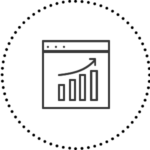
Easy dockerization
Dockerize your scraping instances with ease using our quick dockerization guide.
Related solutions you might like
Watch the Multilogin demo for creating multiple accounts on TikTok
Get a 10-minute demo video on how Multilogin can help you easily build your database of TikTok accounts and remain undetected. Just fill in your name, last name and email below, and we’ll deliver the demo video directly to your inbox.
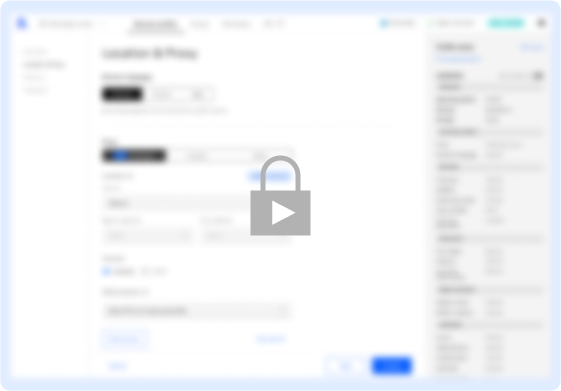
How to start using Multilogin
Start collecting data effortlessly with the industry leading antidetect browser.

Sign up
Register using a verified email address.

Choose your plan
Select from various subscription plans tailored to your business needs.

Download Multilogin agent
Available for Windows, Mac, and Linux.

Access the Multilogin dashboard
Start creating and managing antidetect browser profiles.

Run your data scraping script
Integrate your Puppeteer, Postman, Selenium, and Playwright data scraping scripts and begin collection.
Web scraping proxy: How to stay undetected and collect data safely
You open your laptop, run a script, and watch the data flow. Then—out of nowhere—the website throws a CAPTCHA, slows your requests, or blocks your IP completely.
It’s not because your scraper is bad.
It’s because the platform saw repeated patterns and flagged the source.
This is the moment you realize you need a web scraping proxy. Not a random proxy you found on a forum. Not a brittle setup that breaks halfway. You need a stable environment built for scraping, rotating IPs, and long runs that don’t stop mid-task.
In this guide, you’ll learn how web scraping proxies work, why a proxy server for web scraping matters, how to stay safe, and what setup works best when scraping at scale.
What is a web scraping proxy?
A web scraping proxy sits between your scraper and the website you’re collecting data from. Instead of the site seeing your real IP, it sees the proxy’s IP. If you rotate that IP regularly, every request appears to come from a different “user.”
This keeps you from getting flagged for suspicious activity.
And if you scrape daily, hourly, or in high volume, this becomes the difference between a clean dataset and no access at all.
A web scraping proxy can be:
Residential proxies — IPs from real households
Mobile proxies — IPs from mobile carriers
Datacenter proxies — fast but easier to detect
Rotating proxy networks — constantly changing IPs
Sticky sessions — IPs that stay stable for hours
For scraping, residential proxies usually give the best balance of stability + low detection.
Why do websites block scraping?
Websites don’t block scraping because they “hate developers.” They block it because:
Too many requests from one IP looks suspicious
Traffic patterns reveal automation
Fingerprints don’t match real users
Cookies reset too often
IPs belong to known proxy ranges
Requests hit the same endpoints too fast
If this happens, platforms respond with:
Rate limits
Account locks
Temporary or permanent IP bans
A good proxy setup helps you avoid this. But a proxy alone isn’t enough. You also need a browser environment that looks real.
This is where Multilogin enters the story.
Using a proxy server for web scraping: What actually works
A proper proxy server for web scraping should help you stay undetected, not just hide your IP.
You need:
Real residential IPs
Clean IP history
Long sticky sessions (for login-protected scraping)
Automatic rotation (for large datasets)
Stable uptime
A browser that matches the proxy’s fingerprint
If your proxy and browser don’t align, websites catch you instantly. Most users only realize this when they get their first block.
That’s why scraping teams prefer environments where the proxy and browser work together instead of fighting each other.
Download our latest PDF on scraping websites without blocks!
How to use proxies for web scraping safely
If you want consistent, safe scraping, follow a few rules:
1. Rotate IPs smartly
Don’t hammer a website from one IP.
Rotate slowly, mimic real behavior, and keep session cookies when needed.
2. Use residential proxies
Residential IPs look like real people, not servers. They get fewer blocks and fewer CAPTCHAs.
3. Match your fingerprint
Websites look at far more than your IP. They also check:
Canvas fingerprint
WebGL
Timezone
User agent
Media devices
Fonts
Screen size
If these signals don’t match the IP’s real user profile, you get restricted.
4. Keep projects separate
Never mix cookies, IPs, or fingerprints between clients or projects.
Overlap leads to blocks.
5. Don’t over-request
If you hit endpoints too fast, you’ll get rate-limited instantly.
Follow these rules and your scraping becomes cleaner, quieter, and more stable.
Why many teams use Multilogin for scraping
This article is informational, but it’s impossible to talk about safe scraping without mentioning environments built for it.
Multilogin pairs a real antidetect browser with built-in residential proxies, giving you:
Automatically matched fingerprints
Isolated profiles for each scraping project
95% clean IPs
24-hour sticky sessions
99.99% uptime
No need to configure a separate proxy provider
If you get blocked often, it’s usually because the browser + proxy setup doesn’t match. Multilogin removes that conflict.
How to use a web scraping proxy in Multilogin
Here’s how a scraping workflow looks inside Multilogin:
Create a profile
Assign built-in residential proxy traffic (included in all plans)
Launch the browser with a clean fingerprint
Run your script using Selenium, Puppeteer, Postman, Playwright, or API
Keep that environment isolated so nothing overlaps
Export or clone profiles when scaling
Since the proxy and fingerprint load together, your scraper looks like a real person every time.
Read our guide about how to use a proxy in Multilogin!
Is a proxy API for web scraping useful?
Yes — especially for automation.
A proxy API for web scraping lets you:
Rotate proxies on command
Switch IPs for different tasks
Pass location-specific IPs directly into your script
Control proxy assignment programmatically
Replace old sessions with new ones instantly
Inside Multilogin, you can also do this using the Multilogin API, CLI, or your automation framework.
This keeps large scraping operations structured instead of chaotic.
Best proxy for web scraping: What to look for
There’s no single “perfect” proxy, but the best ones share these traits:
Real residential IPs from actual devices
High uptime
Clean IP history
Sticky and rotating options
Global locations
Fast setup
Compatibility with your fingerprint
A provider that doesn’t oversell IPs
If your scraping is high-volume, choose an environment where the proxy and browser are designed to work together, not patched together manually. That’s why many teams pick Multilogin for serious scraping.
How Multilogin helps you scale scraping without getting blocked
Here’s where Multilogin makes a difference:
Your browser fingerprint and proxy match automatically
All plans include residential proxy traffic
Profiles stay isolated, so websites can’t link your projects
You can run automation through Selenium, Puppeteer, Playwright, or Postman
You can assign proxies through the API
You can run thousands of sessions without clashes
If you get blocked today, it’s usually because your fingerprint looks fake. Fix that, and your proxy setup suddenly becomes stable.
Final thoughts: Web scraping proxies keep your data clean and your access open
A web scraping proxy is more than just an IP switch. It’s the backbone of stable scraping. With the right setup, you collect clean data without interruptions. With the wrong setup, you face bans, CAPTCHAs, broken scripts, and missing information.
If your goal is block-free scraping, use:
Residential IPs
Clean fingerprints
Isolated sessions
Smart rotation
A browser + proxy environment that work together
Multilogin gives you all of this in one place—built-in residential proxies, real fingerprints, automation support, and profile isolation—so you scrape confidently without losing access when it matters most.
FAQ
What is a web scraping proxy and why do people use it?
A web scraping proxy hides your real IP while you collect data from websites. Instead of every request coming from the same address, the proxy sends traffic through different IPs. This prevents blocks, CAPTCHAs, and rate limits. People use scraping proxies to stay undetected, avoid bans, and access geo-specific data.
What type of proxy is best for web scraping?
Residential proxies are usually the safest because they look like real household users. They get fewer blocks and pass most fingerprint checks. Mobile proxies also work well but are more expensive. Datacenter proxies are fast but easier to detect.
For high-volume or login-protected scraping, residential IPs offer the best balance of stability and safety.
How do I use a proxy server for web scraping?
You assign the proxy to your scraper or browser so every request routes through that IP. In automation frameworks like Selenium or Puppeteer, you pass the proxy details when launching the script.
If you’re using Multilogin, each profile loads with a residential proxy and matching fingerprint automatically, so you don’t need to configure anything manually.
How can I scrape websites without getting blocked?
Rotate IPs, use residential proxies, keep cookies consistent, mimic real timing, and avoid hitting endpoints too fast.
Most blocks happen because the browser fingerprint doesn’t match the proxy. Using an antidetect environment (like Multilogin) fixes this by pairing each proxy with a clean, realistic fingerprint.
Is it legal to use proxies for web scraping?
Using proxies is legal. What matters is what you scrape and how you use the data. Public information is generally safe. Scraping content behind logins or breaking a website’s terms may create legal issues. Always follow local laws and use proxies responsibly.
How do rotating proxies work for scraping?
Rotating proxies switch IPs automatically. Each request—or each session—uses a different IP, so websites can’t link your activity. This helps avoid rate limits and blocks.
Rotation works best when paired with proper session handling and realistic browser fingerprints.












